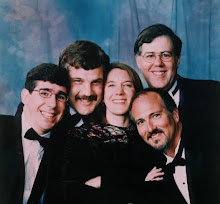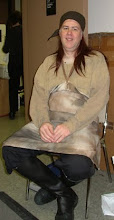"The Magic Flute" is on the one hand a beautiful and complex opera both in terms of its plot and certainly in terms of its music. The music is glorious, no question. But the plot, well, as fanciful and fun as it is in parts, on the whole is rather complex and can be confusing. I have posted about some of these issues below. Perhaps the most perplexing part of the plot is all of the Masonic symbolism, which is interesting, but gets a little lost on 21st century audiences. At the same time at it's core it is a coming of age story. Tamino and Pamina both go through a journey into adulthood and responsibility as do Papageno and Pamina, perhaps a little less successfully. And Sarastro and the QofN have to deal with the issues of letting go. These basic issues mean that Flute is ripe material for alternative imaginings of the plot - also known as Regietheater. Some folks reject Regietheater out of hand, but I think that is a mistake. Certainly some productions don't work, but this can be true of traditional productions as well. This La Fenice "Flute" is a Regietheater re-imagining, but in my view it is very, very well done and thoughtfully conceived. Directed by Damiano Michieletto this production is set within the context of a school and focuses on issues of coming of age, pursuit of knowledge and wisdom and letting go. All of these themes are in the libretto, it is just that they are handled differently than Michieletto, which I think is fine actually. I found the production very engaging and rather fascinating. Part of this was the outstanding cast. Across the board the entire cast was excellent: Tamino - Antonio Poli / Pamina - Ekaterina Sadovnikova / Papageno - Alex Esposito / Sarastro - Goran Juric / Queen of the Night - Olga Pudova / Papagena - Caterina di Tonno / Speaker - Michael Leibundgut / First lady Cristina Baggio / Second lady: Rosa Bove / Third lady Silvia Regazzo / Monostatos Marcello Nardis.
Perhaps one of the most interesting aspects of the production are the journeys the various characters take. There is much that is very untraditional, but very interesting nonetheless. For example Monostatos is also a student who is struggling to find himself and his journey is so much different than the traditional approach, and where he ends up is so much more positive. The Queen of the Night obviously has issues with trying to hold on to the childhood of her daughter and just can't let her go. But eventually she also transforms. And the same can be said for all the principal characters.
Of course, in any Regietheater production one of the problems is that the libretto itself doesn't always cooperate and one must just ignore certain details. Isis and Osiris, for example, didn't really fit and there were plenty of other little details that one had to just get past - there was no water or stone for Papageno's birds, and he really didn't have more than a token bird. But frankly it just didn't matter to me. The overall concept was so strong I felt that I had no problem getting past many of these details.
Musically it was very strong. Conductor Antonello Manacorda was able to elicit quite a lot of energy from the cast and orchestra. In fact, his tempi at times were just about to the edge as terms of being fast. But the cast kept up with him. It was an exciting musical performance and a thought provoking and well done production. Enjoy!
Carmen Aldrich
8 years ago


